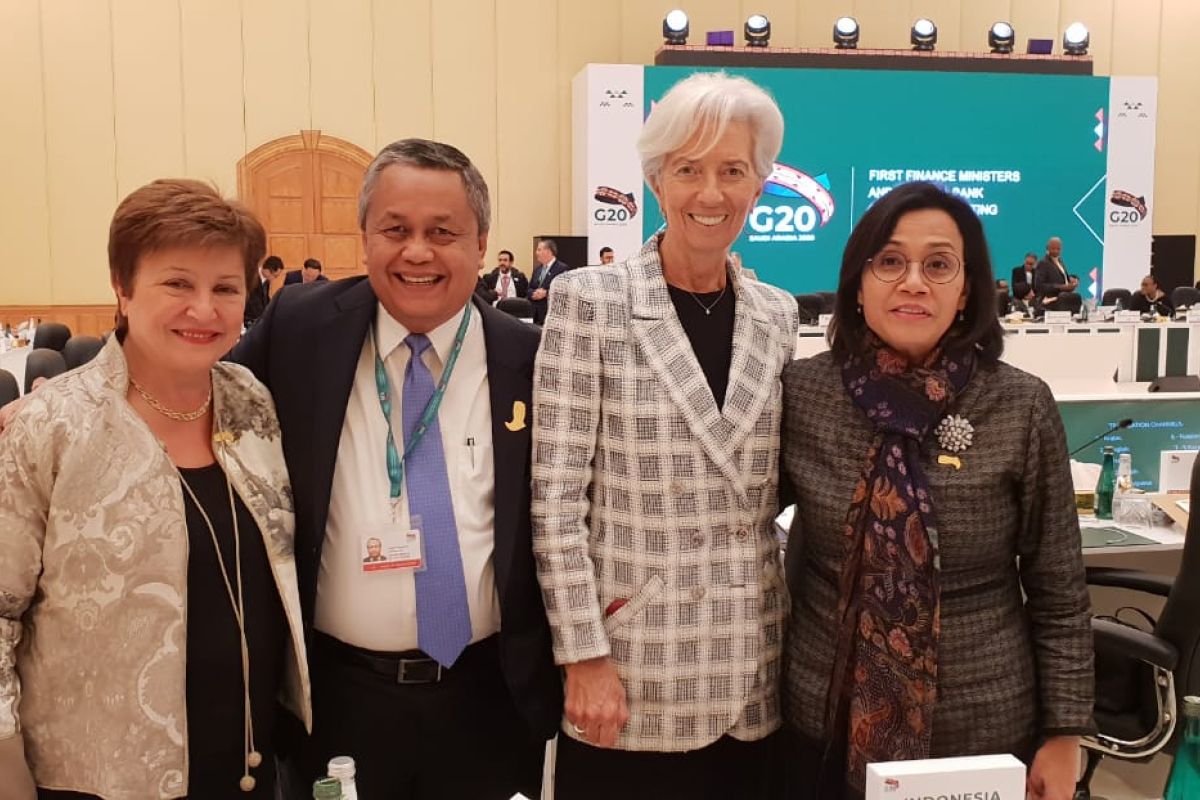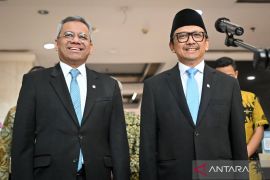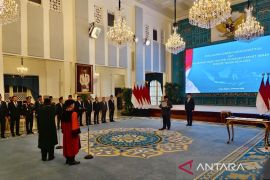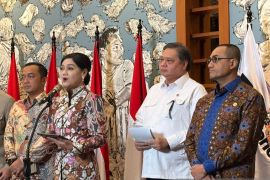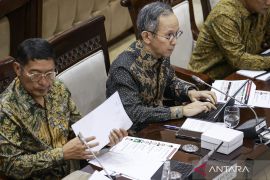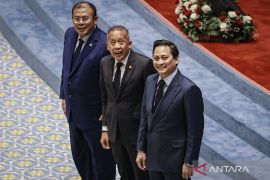In the midst of the prospects of moderate global economic growth, the potential risks are still relatively high, including geopolitical tensions, trade tensions, and policy uncertaintyJakarta (ANTARA) - Bank Indonesia (BI) highlighted the need to step up international cooperation to overcome the current global economic pressure arising from the spread of the coronavirus.
"Indonesia invites G20 countries to continue to strengthen international cooperation and implement a policy mix to strengthen recovery and encourage global economic growth," BI Governor Perry Warjiyo noted in a statement in Jakarta on Monday.
This featured in the discussions that surfaced at a meeting of the Ministers of Finance and Central Bank Governors of G20 countries attended by BI Governor Perry Warjiyo and Finance Minister Sri Mulyani Indrawati on February 22-23, 2020, in Riyadh, Saudi Arabia.
During the meeting, the G20 countries also agreed to strengthen monitoring of global risks, especially those originating from the Covid-19 as well as raising awareness of the various potential risks and agreed to implement an effective policy mix response, in the monetary, fiscal, and structural terms.
Related news: Indonesia to tap domestic market, investment to tackle COVID-19 impact
"In the midst of the prospects of moderate global economic growth, the potential risks are still relatively high, including geopolitical tensions, trade tensions, and policy uncertainty," the BI governor added.
Saudi Arabia took over the G20 Presidency in 2020 with the big theme "Realizing the Opportunity of the 21st Century" that drew motivation from the rapid technological developments that changed the global economic order towards a digital economy and finance.
However, the discussion also encompassed community participation in the economy, especially young people, women, and MSMEs, which still need access and opportunities to be involved in the economy and finance through the utilization of technology.
In addition, opening access to funding sources through the development of the domestic capital market and strengthening the regulation and supervision of the financial sector in the era of the digital economy is also on the agenda of the Saudi Arabian G20 Presidency.
The BI governor also supported the agenda of the Saudi Arabian G20 Presidency in connection with the development of the domestic capital market and underscored the significance of economic resilience as a basis for the development of the domestic capital market.
Furthermore, the BI governor reiterated the criticality of increasing the base of domestic investors, mitigating the volatility of capital flows, and maintaining the integrity of the capital market to prevent frauds and maintain credibility.
In the financial sector, strengthening the financial system through implementing the financial sector reform agenda and utilizing technology became the focus of the Ministers of Finance and Governors of the Central Banks of the G20 countries.
To this regard, the G20 welcomes the Financial Stability Board (FSB) plan, the Committee on Payments and Market Infrastructure, and other Standard Setting Bodies (SSBs) in preparing a road map for strengthening cross-border payment systems and preparing for the transition to the benchmark interest rate from the London Interbank Offered Rate (LIBOR) that will be discontinued in 2021.
Hence, the BI governor echoed Indonesia's support for the agenda of the Saudi Arabian G20 Presidency, specifically cross-border payments and the LIBOR transition. The BI has launched the vision of the Indonesian Payment System 2025 that makes cross-border payments an important element, including supporting the participation of fintech and digital payment services.
So far, BI has been working with relevant authorities to prepare for the LIBOR transition by banks in Indonesia.
BI also reiterated the significance of international cooperation during the transition process.
Furthermore, the G20, under the G20 Presidency of Saudi Arabia, will prepare guidelines to enhance digital financial inclusion to young groups, women, and MSMEs.
Discussions on other crucial issues in the financial sector are underway, such as regulation/supervision related to global stability (GSC), overcoming financial market fragmentation, increasing cyber resilience, and evaluating the impact of implementing the reform agenda in the financial sector, including the condition of Too Big To Fail.
Related news: Indonesian economy projected to decline 0.09 percent over coronavirus
Related news: Google predicts Indonesia's digital economy to reach Rp1.7 quadrillion
EDITED BY INE
Translator: Satyagraha, Azis Kurmala
Editor: Fardah Assegaf
Copyright © ANTARA 2020
